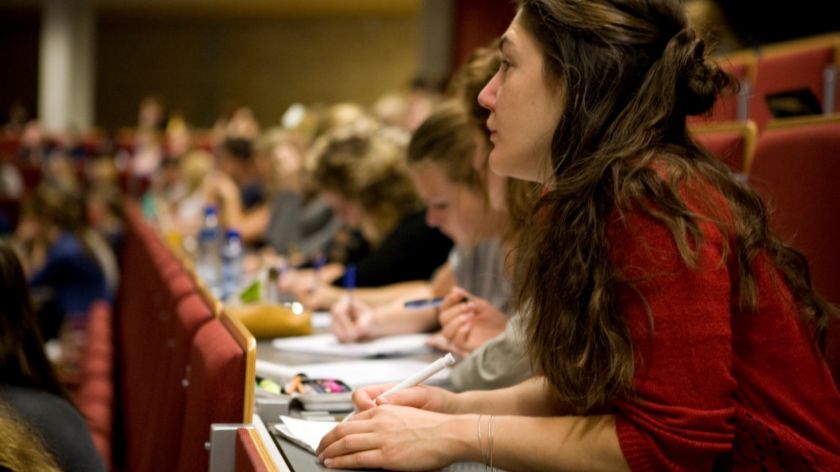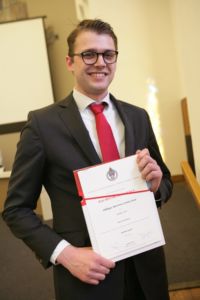The first English bachelor graduates (3): Artificial Intelligence
-
 Foto: Anoek Bleumer
Foto: Anoek Bleumer
The first students of the English bachelor programmes are receiving their diplomas these months. Some of them are staying, others are flying out all over the world. What are their experiences? This time: Arjan Wildhagen, Artificial Intelligence.
When Arjan Wildhagen started the Artificial Intelligence Bachelor in 2014, the programme was taught in Dutch. ‘Well, it was actually not entirely in Dutch. Artificial Intelligence is a field that is filled with English terminology, and the literature is mostly in English as well,’ he says. ‘But when I started, it was normal that some things would be in Dutch, and some in English.’
Two years into his studies, in 2016, the AI programme switched to being taught entirely in English. Wildhagen didn’t experience it as a big change, however. ‘To be honest, having everything taught in English made the studies easier in my opinion. Now we didn’t have to switch between two different languages anymore. And I also think that in a field like AI, it is important to know all the terminology in English and have a good vocabulary.’
Smooth transition

But not all students were fond of the language change. Wildhagen remembers that especially Dutch students found the transition difficult at times. ‘Some of my fellow students complained about the Dutch accent of our lecturers. It was not such a problem for internationals, they just thought it was English with some accent. But I think Dutch students don’t like to listen to English with a Dutch accent.’
Other than that, Wildhagen does feel like the transition went rather smoothly. ‘I don’t remember any big problems regarding organisation. One big help during the transition was our study association COGNAC, who were very open and talkative about the fact that we were going to change to English.’, he remembers. ‘They made several announcements about this and also have been trying to become more international themselves. This year and last year they have brought international students into the board, for example.’
Integration
In general, Wildhagen feels like the integration of international students is going well in his studies. ‘I hear that for many studies here at Radboud, integrating internationals is difficult. But here at AI we really try to engage everyone, especially since the transition to English.’
In his view, the language is one of the key aspects in integrating other groups. ‘Dutch students prefer talking in Dutch to each other because it’s simply easier for them. But since we got so many international students in our study now, Dutch students also try to speak English to other Dutch students, to make it easier for internationals to tune into the conversation.’ He has seen a big increase of international students in the programme. ‘We have people from all over the world now, from Singapore, South Africa, the US and more.’
I got to know many international students, many of whom are my friends now,’ Wildhagen says. ‘But sometimes I wish that the programme would have been in English from the start on, because I notice that I still struggle with the English terminology sometimes.’ Regarding his plans for the future, Wildhagen would like to stay in Nijmegen for now. ‘I would really like to do a PhD here with one of the professors, I hope I can make that happen.’



